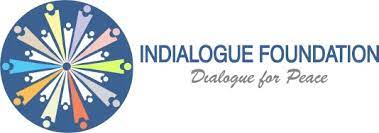Inaugural Session of Two-day National Seminar on “Globalization, Multiculturalism and Peace-building in the XXI Century: Prospects and Challenges” is held in Convention Center, JNU on 19th April 2014.
This National Seminar is organized by Indialogue Foundation, Interfaith Foundation India and Center for the Study of Social Systems, Jawaharlal Nehru University.
More than 200 abstracts were received for the National Seminar. It was uphill task upon Seminar team to select among such an overwhelming response. In two day technical sessions the 66 authors presented their papers. There are delegates from abroad Turkey and Sri Lanka to enrich the Seminar.
Seminar has paper presenters from New Delhi and other cities Hyderabad, Varanasi, Mumbai, Chandigarh, Rewari, Aligarh, Srinagar, Pune, Kolhapur, Chennai, Tirupati, Gandhinagar, Nagpur and Mallapuram.
The first day of the Seminar is held in JNU and second day is held in Indialogue Center.
Honourable Dr. Karan Singh, President, Indian Council for Cultural Relations, GoI, Amb. Ashok Sajjanhar, Secretary, National Foundation for Communal Harmony, GoI, Dr. Ahmet Muharrem Atlig, Secretary General, Journalists and Writers Foundation, Istanbul, Turkey and Swami Shantatmananda, Head of the Ramakrishna Mission New Delhi spoke during Inaugural Session.
It is a human nature to get frightened at the idea of a strange thing. When anybody hears a strange noise while walking in a dark street, his first reaction is one of fear. But after finding that the noise was caused by an innocent small kitten, his reaction converts into love, care and sympathy. It is so imperative to study and promote intercultural values, interfaith dialogue and peace-building initiatives to lay the foundation for peaceful coexistence, harmony and brotherhood.
Unlike a one-dimensional or centralized process, globalization should be as open to the active participation of civil organizations on a world wide scale as it is to various religions, beliefs, cultures and nations. For this purpose, there is a need for international institutions, beginning with the United Nations, to restructure in a democratic way and to develop new institutions compatible with the new situation, taking into consideration their purpose and legal sovereignty.
During the process of globalization, the ability for transformation in the economic, cultural and political structures of the societies can make a great difference among countries. In addition, during this process developed markets can harm lesser developed markets, which can create the effect of deepening the inequalities in their standards of living. In this respect, necessary structural precautions should be taken to protect and strengthen sectors that are becoming poorer as a result of negative effects on the distribution of income.
There is a need for broad acceptance of a global understanding of morality that is tied to the historical and cultural dynamics of societies, unites with universal values, and provides responsibility and solidarity among people and takes into consideration others’ dignity and right to live regardless of differences in identity.
One of man’s basic rights is to pursue life in an environment that is peaceful and in harmony with nature. It should be one of globalization’s main goals to protect the environment for the present and future generations. Globalization should not cause the already scarce natural resources to disappear as a result of encouraging extreme consumerism.
